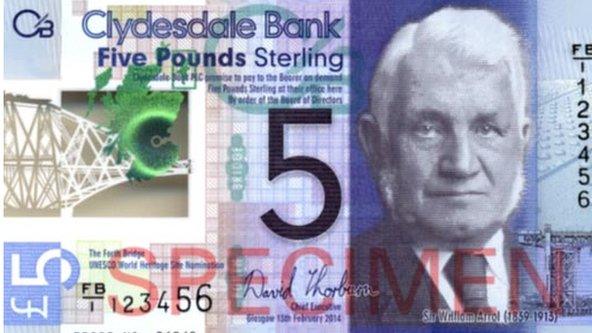Traces of animal fat in Scottish polymer banknotes, producer says
- Published
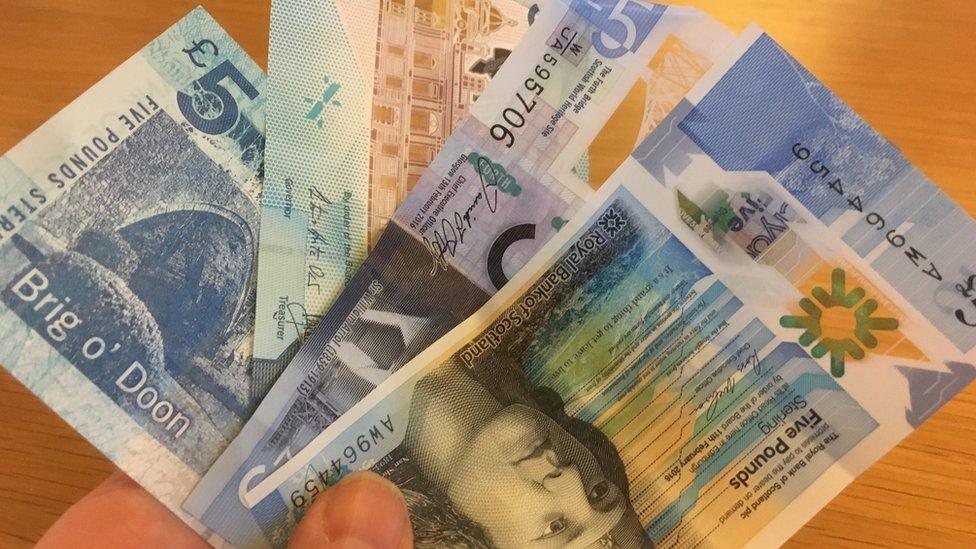
The Scottish notes have now been found to contain minute traces of tallow
The company that produces Scottish polymer banknotes has admitted they contain "minute traces" of animal fat.
The three main Scottish banks, Clydesdale Bank, Bank of Scotland and Royal Bank of Scotland, had been told that the £5 notes were vegan-friendly.
However, De La Rue, which makes the notes, said more detailed analysis had revealed animal derivative equivalent to a maximum of 0.003% per banknote.
A spokesman said it was trying to address the problem with its suppliers.
More than 100,000 people signed a petition after the Bank of England admitted its notes contained a small amount of tallow - derived from animal products.
The Clydesdale Bank, Bank of Scotland and Royal Bank of Scotland, had all said their notes were free of animal products.
Animal derivative
But De La Rue later released a statement which said: "Our initial analysis of our supply chain suggested that our polymer substrate did not contain any traces of tallow, and we advised specific customers on this basis.
"However, recognising the concern expressed by the public in recent days, we have undertaken a detailed and thorough review of our polymer supply chain. This review has identified the potential for minute traces of animal derivative, equivalent to a maximum of 0.003% per banknote.
"We are now working with our suppliers to identify ways of addressing this."
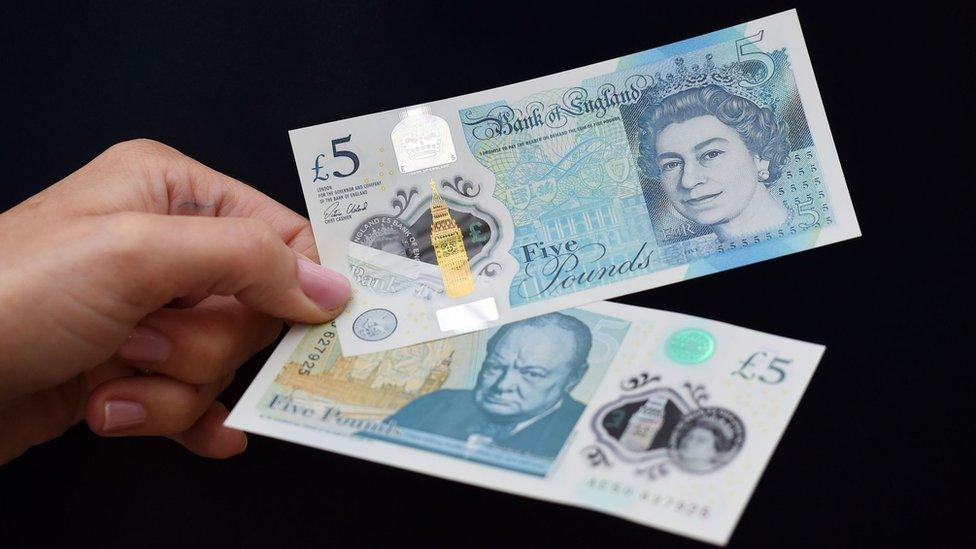
More than 10,000 people have signed a petition objecting to the use of tallow in the Bank of England notes
A statement, made on behalf of the three banks, through the Committee of Scottish Clearing Bankers, said: "Royal Bank of Scotland, Clydesdale Bank and the Bank of Scotland have been contacted by De La Rue following its announcement this afternoon and are in full dialogue with the manufacturer.
"None of the banks were previously aware of the potential presence of animal products in the manufacture of its polymer notes and recognise and understand the concerns of customers. We have asked De La Rue to investigate why this has happened as a matter of urgency.
"De La Rue is working with its suppliers and will keep all banks informed as it continues its investigation."
Tallow use 'unacceptable'
On Tuesday the Bank of England said "an extremely small amount" of tallow was used in an early stage of the production process and that the issue had "only just come to light".
The petition, on the Change.org website, calls on the Bank of England to "cease to use animal products in the production of currency that we have to use".
It states that tallow, which is often used in the manufacturing of candles and soap, is "unacceptable to millions of vegans, vegetarians, Hindus, Sikhs, Jains and others in the UK".
A number of Sikh and Hindus have also urged the notes be banned from temples, where meat products are forbidden.
Hindus believe cows are holy and sacred, and many do not wear shoes or carry bags made from the skin of cattle that has been slaughtered. Practising Sikhs are strict vegetarians.
Polymer notes are more durable than the paper ones. They are expected to last an an average of five years - compared to two years previously.
- Published30 November 2016

- Published30 November 2016
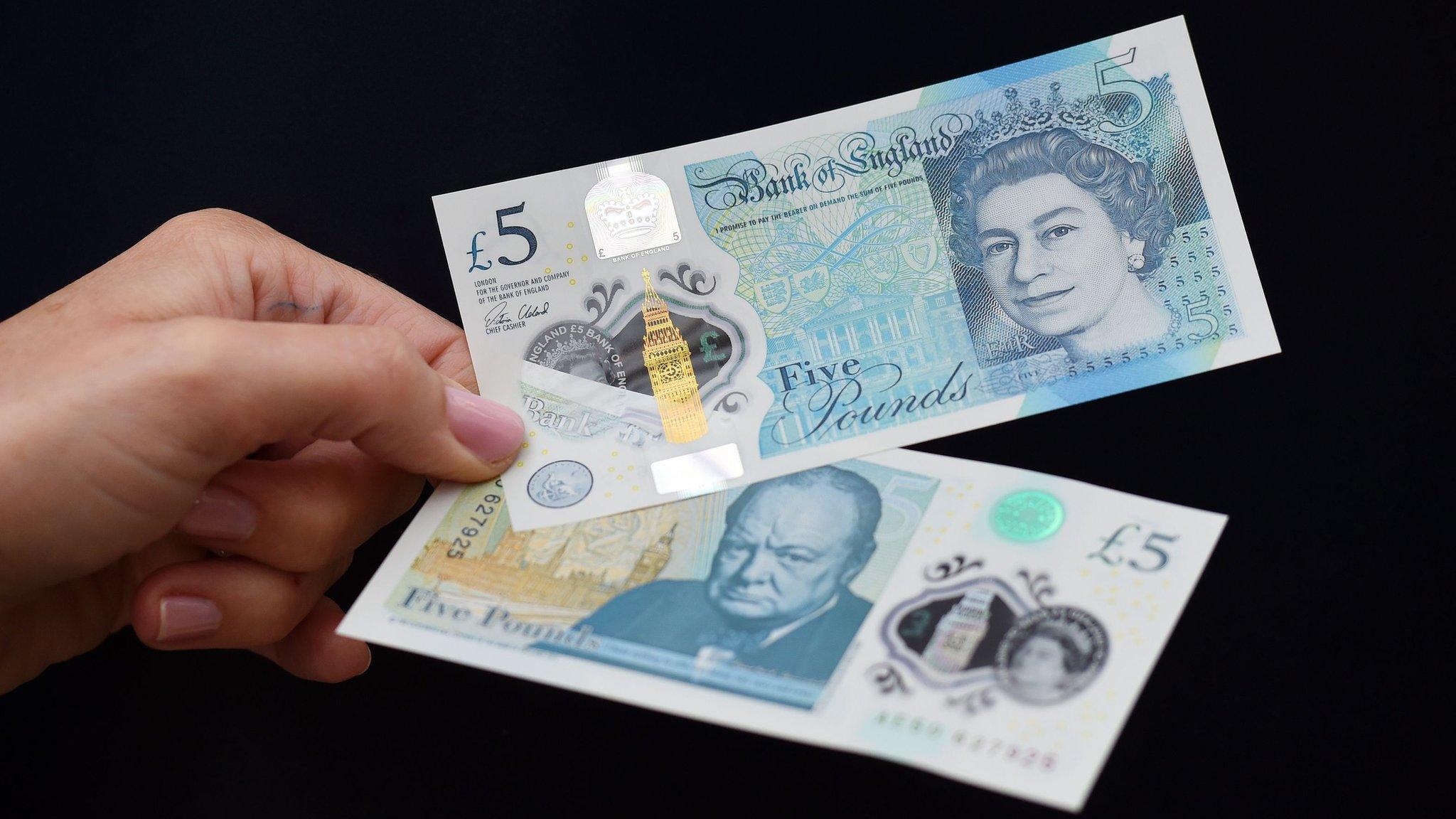
- Published30 November 2016
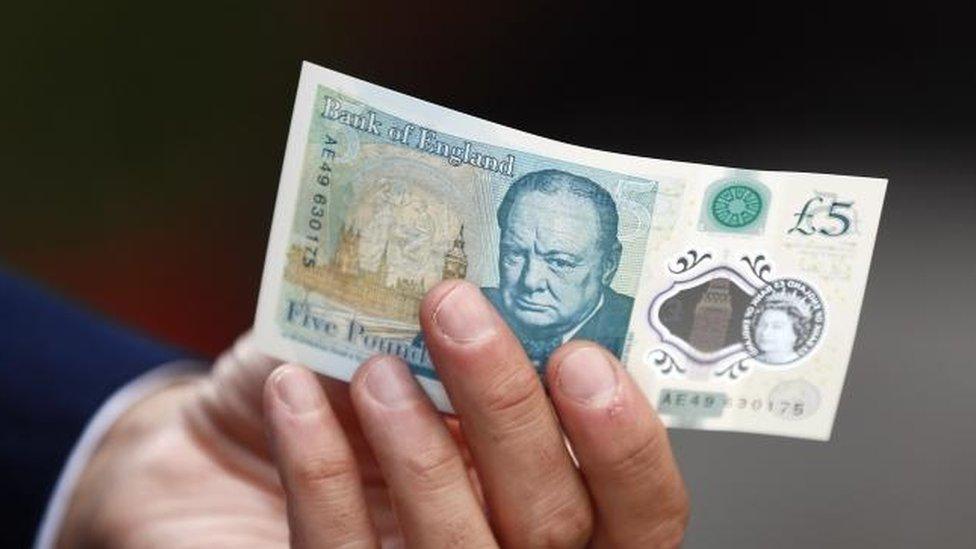
- Published29 November 2016

- Published27 October 2016
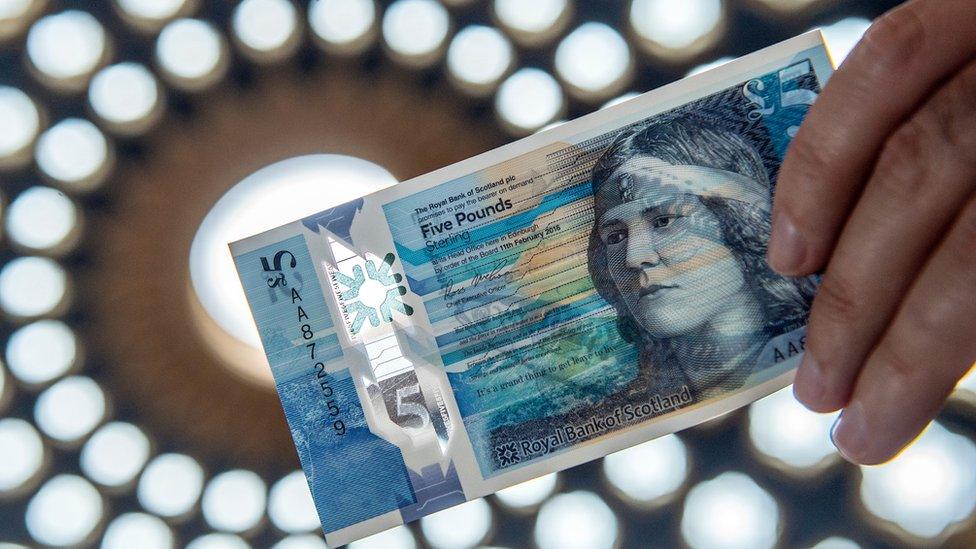
- Published4 October 2016

- Published23 March 2015
